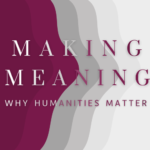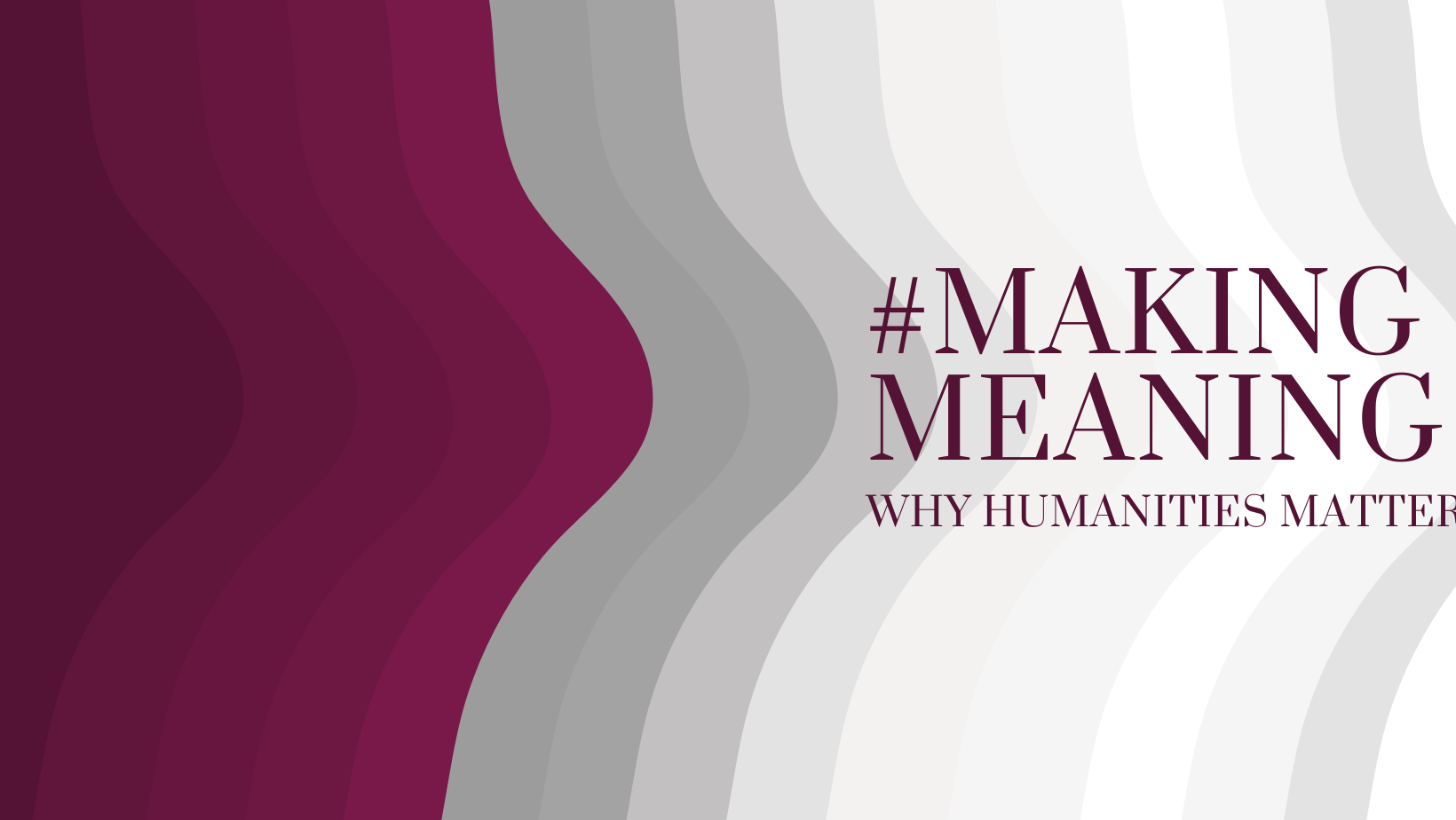The Federation of State Humanities Councils Launches First-Ever Podcast, Making Meaning: Why Humanities Matter
 November 17, 2021 [Arlington, VA] — Making Meaning: Why Humanities Matter, the Federation of State Humanities Council’s first-ever podcast, launched on Tuesday, November 9, 2021 in English and in Spanish translation. Listen to the season here.
November 17, 2021 [Arlington, VA] — Making Meaning: Why Humanities Matter, the Federation of State Humanities Council’s first-ever podcast, launched on Tuesday, November 9, 2021 in English and in Spanish translation. Listen to the season here.
This six-episode season is about the role the humanities have played during the pandemic and in our recovery across the greater United States. With representation from 19 states and jurisdictional territories, the season comprises 12 interviews and features stories from African Americans, Asian Americans, Cuban Americans, Native Americans, and an immigrant from Pohnpei in the Federated States of Micronesia. Topics move from thinking about the role the humanities play in times of crisis to focusing on Native and Indigenous communities, civic engagement, decolonization, social and environmental justice, racism, and rural communities.
“The humanities are an ever-present source of strength, and the Federation is proud to present a project exploring the work the humanities have done to support communities in times of crisis, to offer much-needed context, and to aid in healing across our nation,” said Phoebe Stein, president of the Federation of State Humanities Councils.
Each episode balances two interviews: one that tells a story from a public humanities program about a specific topic and another that takes a broad-ranging look at it with a humanities leader. Guests include Natasha Trethewey, two-term US Poet Laureate and Pulitzer-Prize winner; Dr. John Kuo Wei Tchen, Inaugural Clement A Price Professor of Public History & Humanities at Rutgers University-Newark and director of the Clement Price Institute on Ethnicity, Culture & the Modern Experience; and Dr. Chuck Fluharty, founder, president, and CEO of the Rural Policy Research Institute, the only organization in the country that assesses how public policies affect rural communities.
“I was honored to learn from leading humanities thinkers and talk about the incredible work humanities councils are doing across the country at this vital and challenging moment in history. Every conversation proved remarkable, demonstrating over and over again that the humanities are essential in all our lives,” said Sydney Boyd, podcast host and editor at the Federation of State Humanities Councils.
Making Meaning is produced by LWC Studios and is part of the Federation’s “Humanities in American Life” initiative, which is funded by The Andrew W. Mellon Foundation and is focused on raising the public profile of the humanities and the work that the state and jurisdictional councils are doing. We are so grateful for the generous participation of the council community and of other humanities leaders.
Episode 1: The Humanities in Times of Crisis: Poet, writer, and physician Dr. Rafael Campo reads his poem “The Doctor’s Song” and talks about the healing power of the humanities. Dr. Gioia Woods, Chair of the Department of Comparative Cultural Studies and Professor of Humanities at Northern Arizona University, shares The Pandemic Stories Project, a reading, discussion, and oral history program she created to document the impact of COVID-19 in her rural community.
Episode 2: Civic Engagement by Way of Poetry: Carol Ann Carl, a storyteller from Pohnpei Island in the Federated States of Micronesia, talks about how she uses poetry to advocate for historically marginalized communities. Two-term US Poet Laureate Natasha Trethewey describes how poetry can articulate acts of civic engagement.
Episode 3: Environmental Justice, Climate Disasters, and the Humanities: Adrienne Kennedy, a climate activist and organizer from south Lumberton, North Carolina, talks about what environmental justice looks like for her after Hurricane Matthew destroyed her home. Dr. Joseph Campana, director of the Center for Environmental Studies at Rice University, explores ways the humanities can help us process relentless patterns of climate catastrophe.
Episode 4: By the Book: Connecting Rural Communities: Jenny De Groot, a children’s librarian on Orcas Island in the Pacific Northwest, reads some of her favorite books while sharing how her remote community found ways to connect during the pandemic. Dr. Chuck Fluharty, founder, President, and CEO of the Rural Policy Research Institute (RUPRI), explores the future of rural and urban communities through a public humanities lens.
Episode 5: Living Histories of Race and Racism: Danyetta Najoli, co-founder of The Black American Tree Project, explains how the immersive story-telling project’s design evokes a sense of reckoning with slavery’s origins. Dr. Jack Tchen, the Inaugural Clement A. Price Professor of Public History and the Humanities and Director of the Price Institute at Rutgers University, takes a deep dive into histories of dispossession.
Ep. 6: Indigenous Communities and the Strength of Storytelling: Writer and visual artist Melissa Melero-Moose talks about fostering creativity during the pandemic on the Reno-Sparks Indian colony in Hungry Valley, NV. Eric Hemenway, director of the Department of Repatriation, Archives and Records for the Little Traverse Bay Bands of Odawa Indians, explains how storytelling can uncover misrepresentations about Native communities.
For more information, visit our website or contact Sydney Boyd at sboyd@statehumanities.org.
About the Federation of State Humanities Councils
Founded in 1977, the Federation of State Humanities Councils is the national member association of the US state and jurisdictional humanities councils. The Federation’s purpose is to provide leadership, advocacy, and resources to help members advance programs that engage millions of citizens across diverse populations in community and civic life.
About the Councils
The state humanities councils are independent nonprofit organizations supporting and creating grassroots humanities programs and community-based activities. Humanities councils were established by Congress in the early 1970s and receive an annual congressional appropriation through the National Endowment for the Humanities, which most councils supplement with state and private funding.


